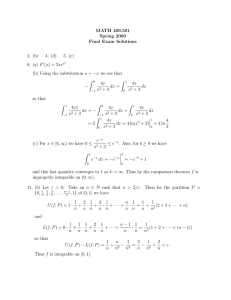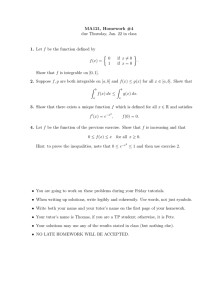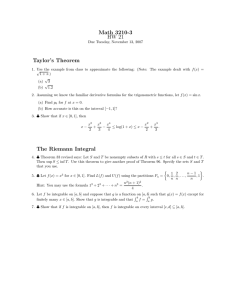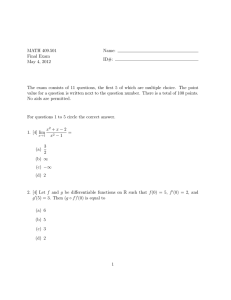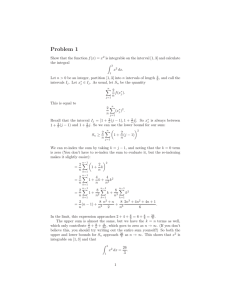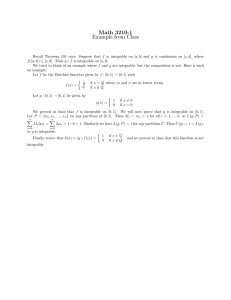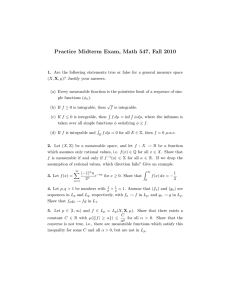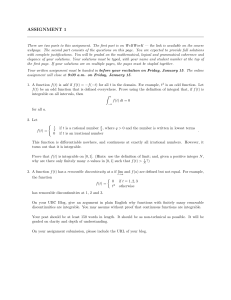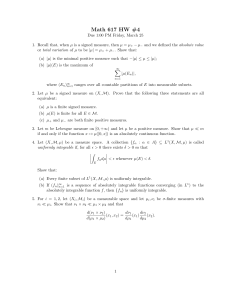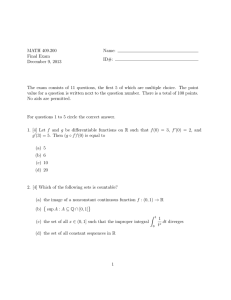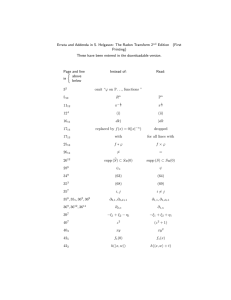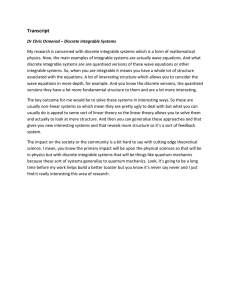MATH 409.501 Spring 2012 Final Exam Solutions 1. (a)
advertisement
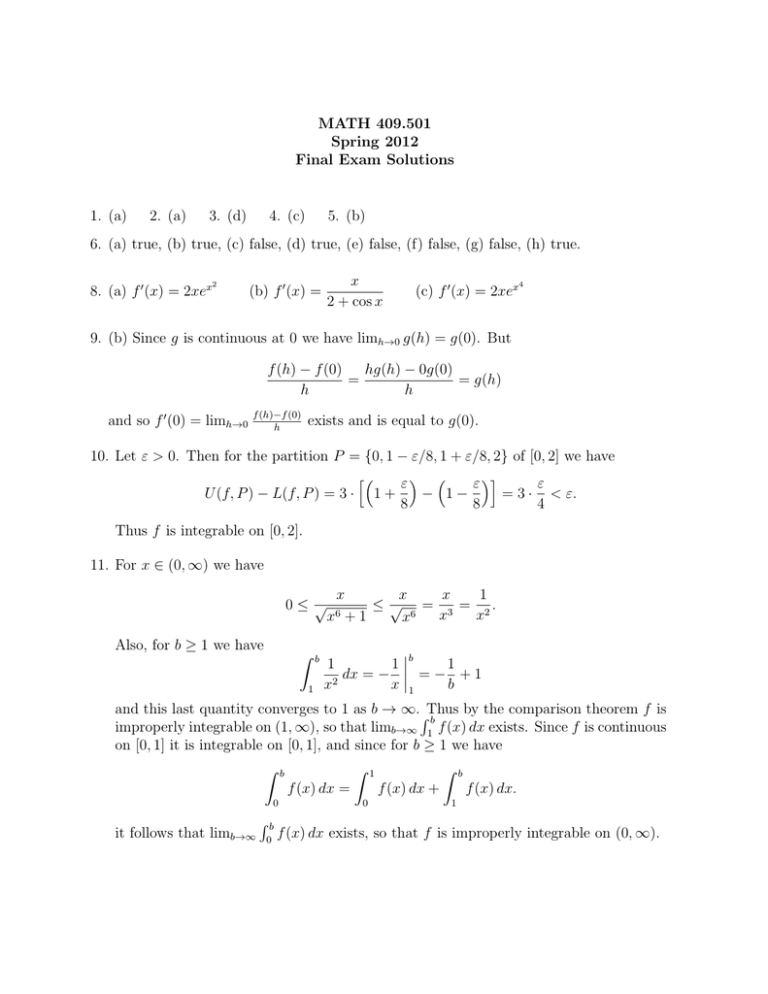
MATH 409.501
Spring 2012
Final Exam Solutions
1. (a)
2. (a)
3. (d)
4. (c)
5. (b)
6. (a) true, (b) true, (c) false, (d) true, (e) false, (f) false, (g) false, (h) true.
8. (a) f 0 (x) = 2xex
2
(b) f 0 (x) =
x
2 + cos x
(c) f 0 (x) = 2xex
4
9. (b) Since g is continuous at 0 we have limh→0 g(h) = g(0). But
f (h) − f (0)
hg(h) − 0g(0)
=
= g(h)
h
h
and so f 0 (0) = limh→0
f (h)−f (0)
h
exists and is equal to g(0).
10. Let ε > 0. Then for the partition P = {0, 1 − ε/8, 1 + ε/8, 2} of [0, 2] we have
h
ε i
ε
ε − 1−
= 3 · < ε.
U (f, P ) − L(f, P ) = 3 · 1 +
8
8
4
Thus f is integrable on [0, 2].
11. For x ∈ (0, ∞) we have
x
x
x
1
≤ √ = 3 = 2.
0≤ √
6
x
x
x +1
x6
Also, for b ≥ 1 we have
Z
1
b
b
1
1 1
dx = − = − + 1
2
x
x 1
b
and this last quantity converges to 1 as b → ∞.RThus by the comparison theorem f is
b
improperly integrable on (1, ∞), so that limb→∞ 1 f (x) dx exists. Since f is continuous
on [0, 1] it is integrable on [0, 1], and since for b ≥ 1 we have
b
Z
Z
f (x) dx =
0
it follows that limb→∞
Rb
0
1
Z
f (x) dx +
0
b
f (x) dx.
1
f (x) dx exists, so that f is improperly integrable on (0, ∞).
